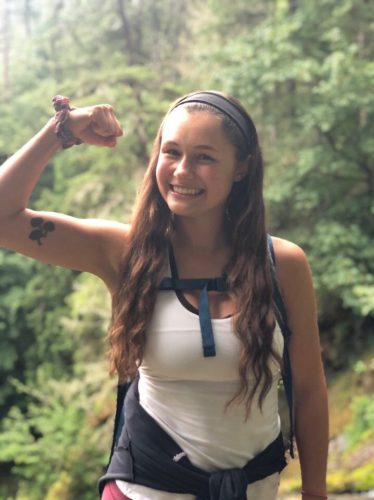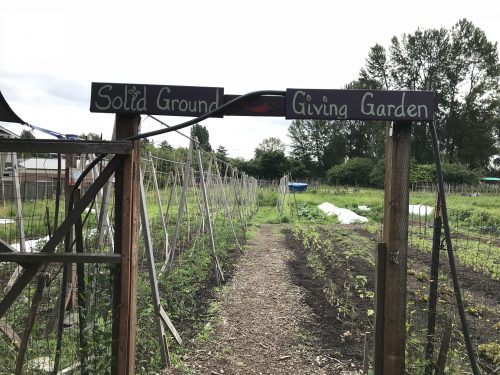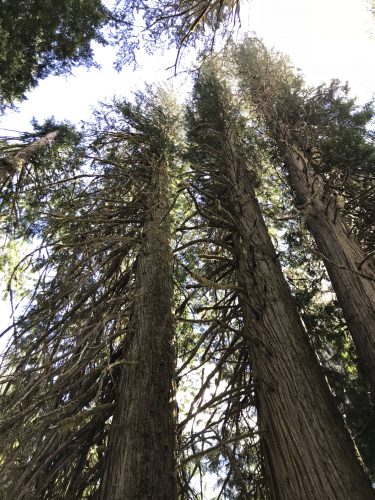
“Because my loved ones attend a relatively safe school, are not suffering from asthma due to poor local air quality, and are not harassed by the police, I have the emotional space to prioritize feeling agony over the imminent loss of iconic species such as polar bears, lions, and dolphins.”
– An excerpt from Privilege in the Environmental Movement by Gregory Mengel and adapted from the Pachamama Alliance
I first heard this line during a reflection activity that we did about 2 weeks ago. I applied to DukeEngage Seattle to learn about urban sustainability. Sustainability to me meant protecting the environment. Of course, I was excited to come to Seattle, where sustainability is at the forefront of citizens’ minds, plastic straws are banned, a carbon tax—nearly—passed, and composting is mandatory for households. However, what I have realized that I had initially failed to see is that many people simply cannot prioritize the environment because they are facing so many environmental injustices. Hidden just behind this movement that aims for more environmental protection is a dearth of environmental resources and rights for a large portion of society. It is only because of my own environmental circumstances, which have fulfilled all my health, financial, and educational needs, that I am able to focus on the environment. Solid Ground, the NGO I work for, has shown me that improving environmental rights and environmental protection are equally important issues, that can only be tackled in tandem.
Before I came to Solid Ground, I was highly interested in ethical eating. Even though my brother told me it was a “rich man’s dilemma,” I still wanted to do my best. I wanted to know whether I should eat organically, be a vegetarian, what brand of eggs I should buy, etc…

At Solid Ground, I have found the focal point to be nutritional access before environmentalism. For example, I was surprised to learn that Marra Farm is more focused on nutrition education than on production, just like Duke Campus Farm. In my mind, it was going to be an example of a food system that bypassed industrialized agriculture to feed a food insecure population. It does do this on a very small scale, by providing some supplemental produce in a food desert. But its main role is to educate about nutrition and to create advocates for food justice. Solid Ground’s approach may have a greater long term impact. Food banks already exist and are vital, but organizations that provide nutritional education and convert people into food justice advocates are few and far between.

Similarly, in Solid Ground’s cooking classes, their primary focus is on nutrition accessibility for low income individuals rather than on creating “ethical eaters.” The organization trains its volunteers to create a non-judgmental atmosphere about the types of food people eat meanwhile providing knowledge and tips on how to eat more healthfully on a budget. Additionally, they try to stay away from hot debates about organic vs. conventionally grown food, as it would be unfair to make organic food or vegetarian food the only way to “ethically” receive good nutrition. We cannot talk about choosing organic before talking about access to any vegetables at all, either financially or geographically. Referring to the opening quote, we cannot expect people to have the emotional space to battle environmental health while their own health is suffering and they do not have the information/education they need. But by providing the access and education to eat more nutritious food, we will create a happier and healthier society that CAN focus more energy on environmental impact.
Although some of these statements may seem obvious, in the heart of Seattle, an incredibly foodie, healthy, and environmentally focused city, this is a highly relevant discussion. The other day I went out to brunch, and saw the breakfast joint’s slogan, “Eat like you give a damn.” I am not sure whether they are referring to personal health, the environment, or both, but it does assume that eating unhealthfully is a conscious decision. It is no more fair for us to criticize people for their food choices than it is fair for people to not to have choices. People need the knowledge, access, and finances to live more healthfully.

Admittedly, I was skeptical of the urban sustainability theme of this DukeEngage because it is such a broad topic. Yet I think all of us are finding that homelessness, human rights work, advocacy, population health, and environmental health were all deeply intertwined and must be addressed simultaneously. We have tried to discuss how this might work in practice. In regards to environmentalism, perhaps Solid Grounds could partner with more environmentally focused organizations such as Washington Environmental Council so that they could align more goals and efforts. In the meantime, we must recognize that being an environmentalist is not possible for some because of, ironically, their environment.
